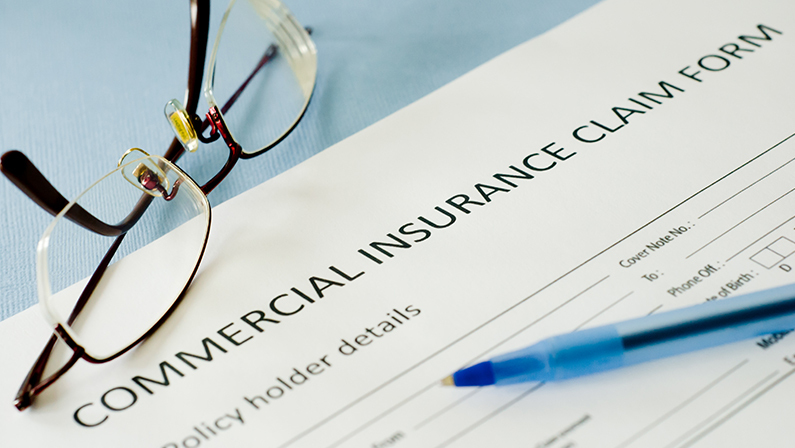
In today's business landscape, unpredictable incidents occur, often leading to financial uncertainty. As a business owner, it's vital to protect your company from potential threats.
One essential safeguard measure is obtaining commercial general liability insurance. This guide will shed light on the importance and mechanics of this type of insurance to help ensure your business's success and longevity.

Commercial general liability insurance (CGL) is a type of insurance policy designed to protect businesses from various liability exposures, including lawsuits, injury claims, and property damages caused by business operations or services provided.
This policy covers legal defense costs, settlements, and judgments arising from such claims. By having CGL insurance in place, businesses can mitigate potential financial losses and safeguard their reputation.
Commercial general liability insurance covers a broad spectrum of risks that businesses are likely to encounter.
The coverage typically includes:
It's worth noting that commercial general liability insurance does not typically cover intentional acts or professional errors and omissions. These exclusions necessitate other forms of coverage, such as professional liability insurance.

Any business, irrespective of its size or industry, can benefit from commercial general liability insurance. Businesses with a physical location, those who work in direct contact with customers, or companies marketing their products or services significantly should strongly consider this policy.
Typical industries that need CGL insurance include:
Commercial general liability insurance operates on an occurrence basis. This means coverage applies to incidents that occur during the policy period, regardless of when the claim is reported. When a covered event occurs, the insurance company will provide the legal defense and pay for any resulting damages or settlements up to the policy's limits.
The limits of the policy refer to the maximum amount the insurance company will pay for a single claim or the entire policy period. These limits can usually be adjusted based on the needs and risk level of the business.
In the event of a claim, the business usually pays a deductible, and the insurance company covers the remaining costs up to the policy limit. The business may have to pay out-of-pocket for any costs exceeding the policy limit.
While commercial general liability insurance for contractors indeed offers broad coverage, it's important to understand what it doesn't cover. Every policy has its limitations, and gaining clarity on these exclusions can help businesses plan better for potential risks.
Typically, CGL insurance does not cover the following:
It's crucial to familiarize yourself with the exact terms and conditions of your policy to ensure you have the necessary coverage for all potential risks associated with your business.

Securing a commercial general liability insurance policy is a responsible decision for any business owner.
Here are the steps you should follow:
Commercial general liability insurance is just one component of a comprehensive business insurance plan. While it offers extensive protection against third-party claims, it does not cover every potential risk. As such, businesses should consider supplementing their CGL policy with other types of coverage.
Examples of relevant policies include:
It is advisable to consult with an insurance agent or broker to ensure all aspects of your business are adequately covered and to know how much is commercial general liability insurance.
Selecting the right commercial general liability insurance policy requires careful consideration of several factors.
Before purchasing a policy, business owners should:
By carefully considering these factors, business owners can make informed decisions to select the commercial general liability insurance policy that best suits their unique needs.

While commercial general liability insurance is not legally required, it's frequently deemed indispensable coverage for businesses. Certain industries or client contracts may necessitate businesses to carry CGL insurance. Plus, leasing agreements for commercial spaces often require tenants to have some level of liability coverage.
Even if it's not a legal or contractual obligation, having CGL insurance can safeguard businesses against crippling financial losses from unforeseen incidents, which potentially can threaten the business's operational sustainability and reputation.
Traditional commercial general liability insurance policies typically do not cover data breaches or cyber incidents. Such risks generally fall under the purview of cybersecurity or cyber liability insurance.
These dedicated policies protect against financial losses stemming from data breaches, such as dealing with the legal fallout of stolen customer information or covering the costs associated with notifying affected customers and providing them with credit monitoring services.
However, with the pervasive threat of cybercrime in today's digital landscape, it's crucial for businesses – especially those involved extensively in e-commerce or storing sensitive customer data – to seriously consider investing in cyber liability insurance alongside CGL insurance.
Commercial general liability insurance is an essential cover that shields a business from a wide range of risk exposures. From small startups to large corporations, every business stands to benefit from the protection offered by a well-considered CGL policy.
Whether you're located in Houston, Dallas, San Antonio, or Fort Worth, Hotchkiss Insurance is your trusted partner in navigating the complexities of commercial insurance.
We understand that every business is unique and requires tailor-made coverage to match. Through a comprehensive analysis of your business model, operations, and risk profile, we deliver insurance solutions that offer not just protection but peace of mind.
At Hotchkiss Insurance, we firmly believe that your success is our success. Together, let's ensure your business thrives, even in the face of adversity.